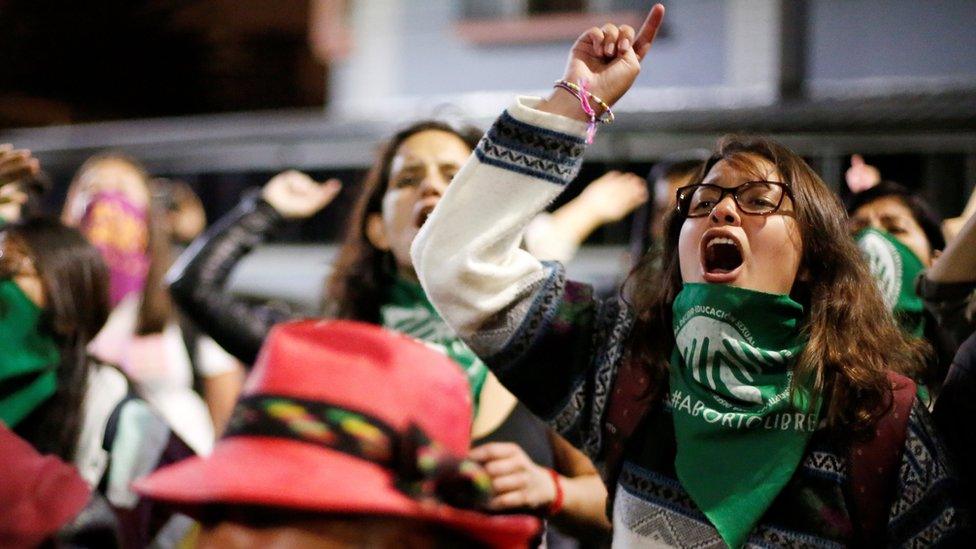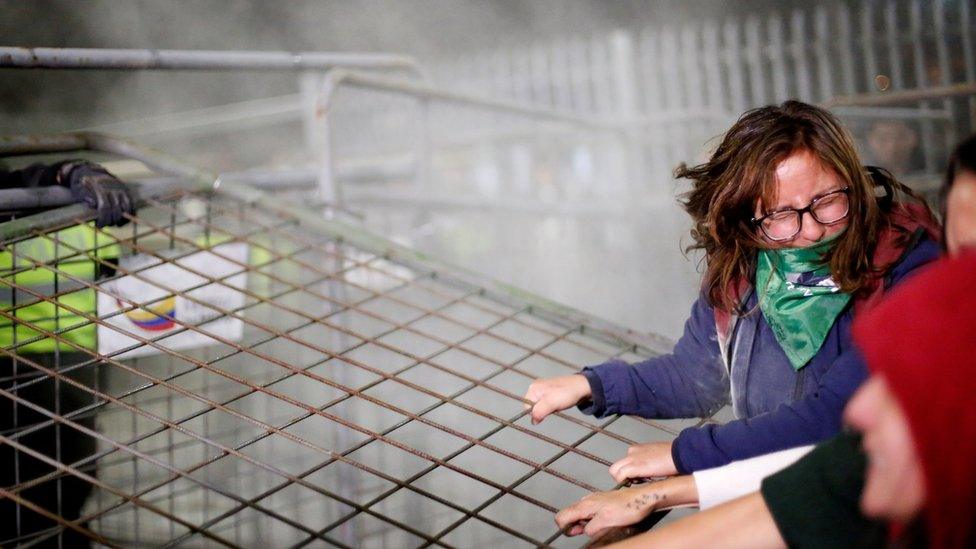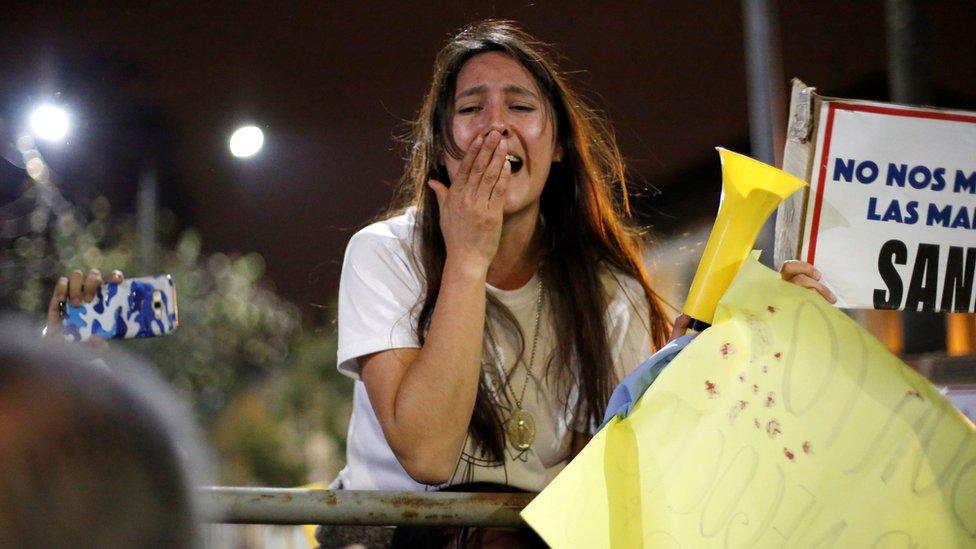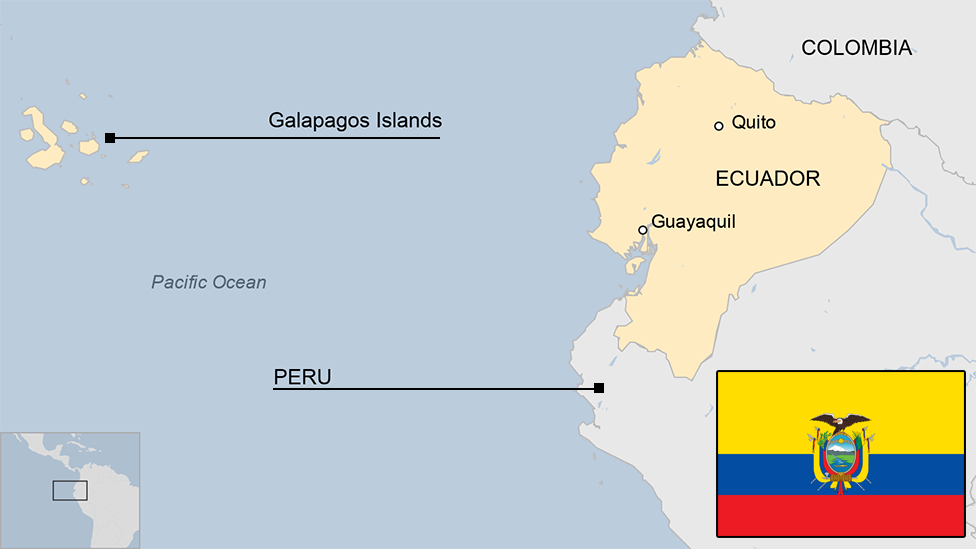Ecuador abortion: National Assembly rejects easing law in rape cases
- Published

Pro-choice activists say there is an epidemic of rapes of girls and underage pregnancies
Ecuador's parliament has rejected a controversial bill to allow abortion in cases of rape, a proposal that exposed divisions in the traditionally Catholic country.
Supporters of the reform pointed to what they say is an epidemic of rapes of girls and underage pregnancies.
Some opposed it on religious grounds saying innocent lives would be at risk.
Abortion is allowed only after the rape of a woman with a mental disability or when the mother's life is in danger.
The proposal, which would also decriminalize abortion in cases of foetal abnormalities, fell five votes short of the 70 required for its approval at the National Assembly. Fifty-nine members were against it and six refrained from voting.
The current abortion laws have been in place since 1938, and women undergoing terminations face up to two years in jail.
During the vote, dozens of pro-choice and anti-abortion protesters gathered outside the parliament's building in the capital, Quito. After the result was announced, supporters of the bill clashed with police, who used pepper spray to disperse them.

Police used tear gas against pro-choice protesters who were outside the National Assembly
Because of the restrictions, women and girls seek illegal and unsafe abortions, which can lead to health complications and death, activists say. Ecuador's health ministry said 15.6% of maternal deaths in 2014 were a result of clandestine terminations.
On average, seven girls under 14 - the age of consent in Ecuador - give birth every day, external in the country, or some 2,500 a year, while seven others terminate their pregnancies, according to rights group Fundación Desafío. And a quarter of all pregnancies of those aged between 15 and 19 is a result of rape, the group added.
Meanwhile, 11 women report cases of rape every day nationwide.
"Girls and women in the country, victims of sexual violence, are systematically tortured, forced into motherhood that they don't want," said Ana Cristina Vera, a supporter of the bill.

The abortion debate in Latin America

The reform was strongly opposed by the influential Catholic Church. Before the vote, the archbishop of Quito, Alfredo Espinoza, urged parliamentarians to reject it, saying: "God is the God of life, not the God of death."
More conservative members of the National Assembly, which had been debating the bill since January, defended increasing penalties for rapists instead of easing access to abortion.
In a debate in February, parliamentarian Pedro Curichumbi said allowing abortion in cases of rape "would turn [rape] into a sport or a hobby", encouraging men and boys to continue to violate women, Reuters news agency reports.

An anti-abortion supporter reacts during the protest outside the National Assembly
Proposals to change the legislation had already been rejected by the National Assembly in 2013.
"The rights that we have need to be respected," said Pamela Enriquez, who was protesting against the bill. "The love and values of our parents, of our ancestors [need to] be respected, a love for life, a love for the basic respect for life."
Abortion in cases of rape is allowed in many Latin American countries,, external including Argentina, Bolivia, Brazil, Chile, Colombia, Mexico and Panama, according to the advocacy group Center for Reproductive Rights.
Some countries have banned them entirely. Among them are Honduras, Nicaragua and El Salvador, where the trial of a 21-year-old woman accused of murdering her baby, found dead in the toilet where she had given birth, was internationally condemned.

You may also find interesting
'I felt ashamed at having two abortions in a year'
- Published15 January 2024
